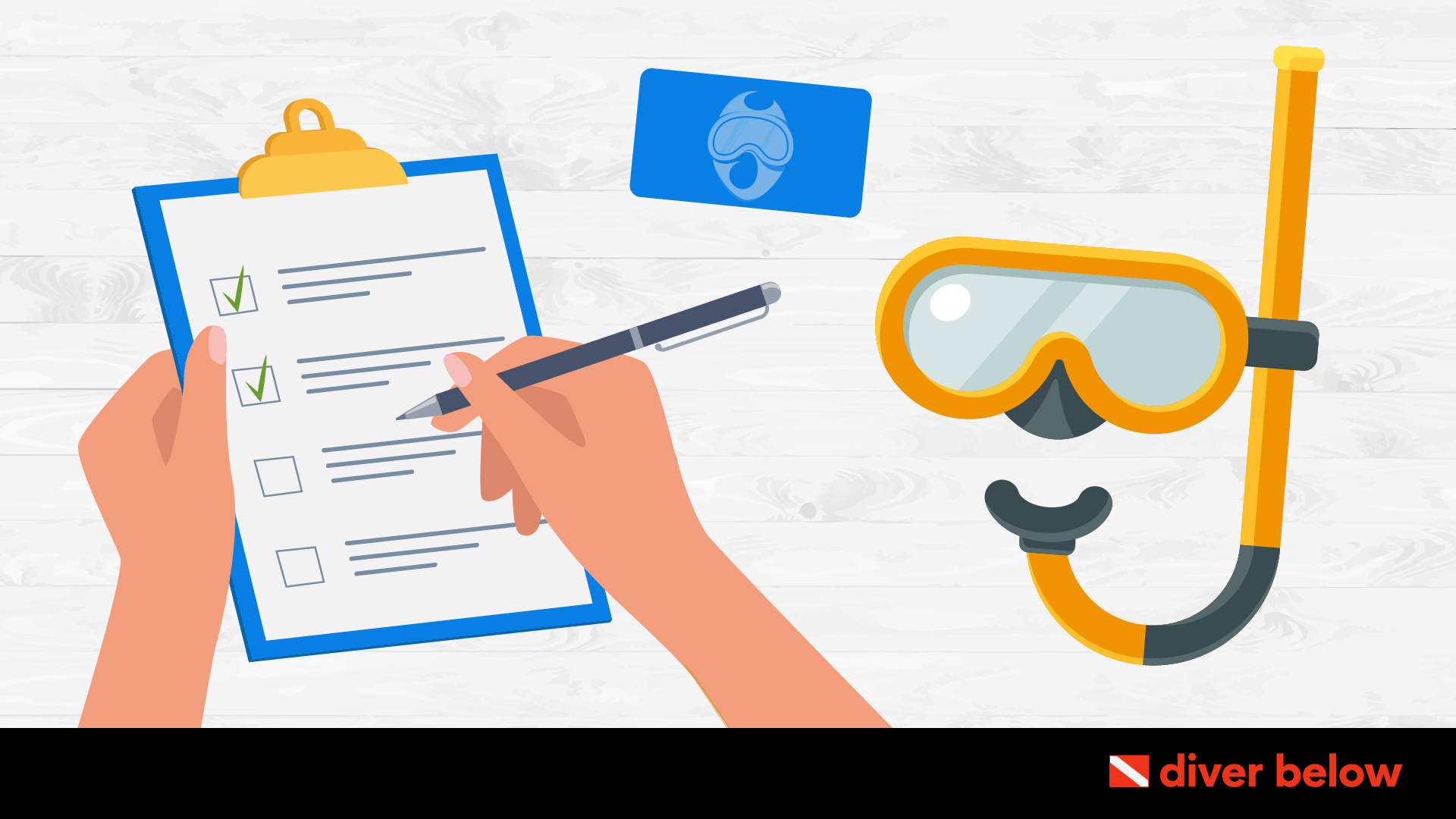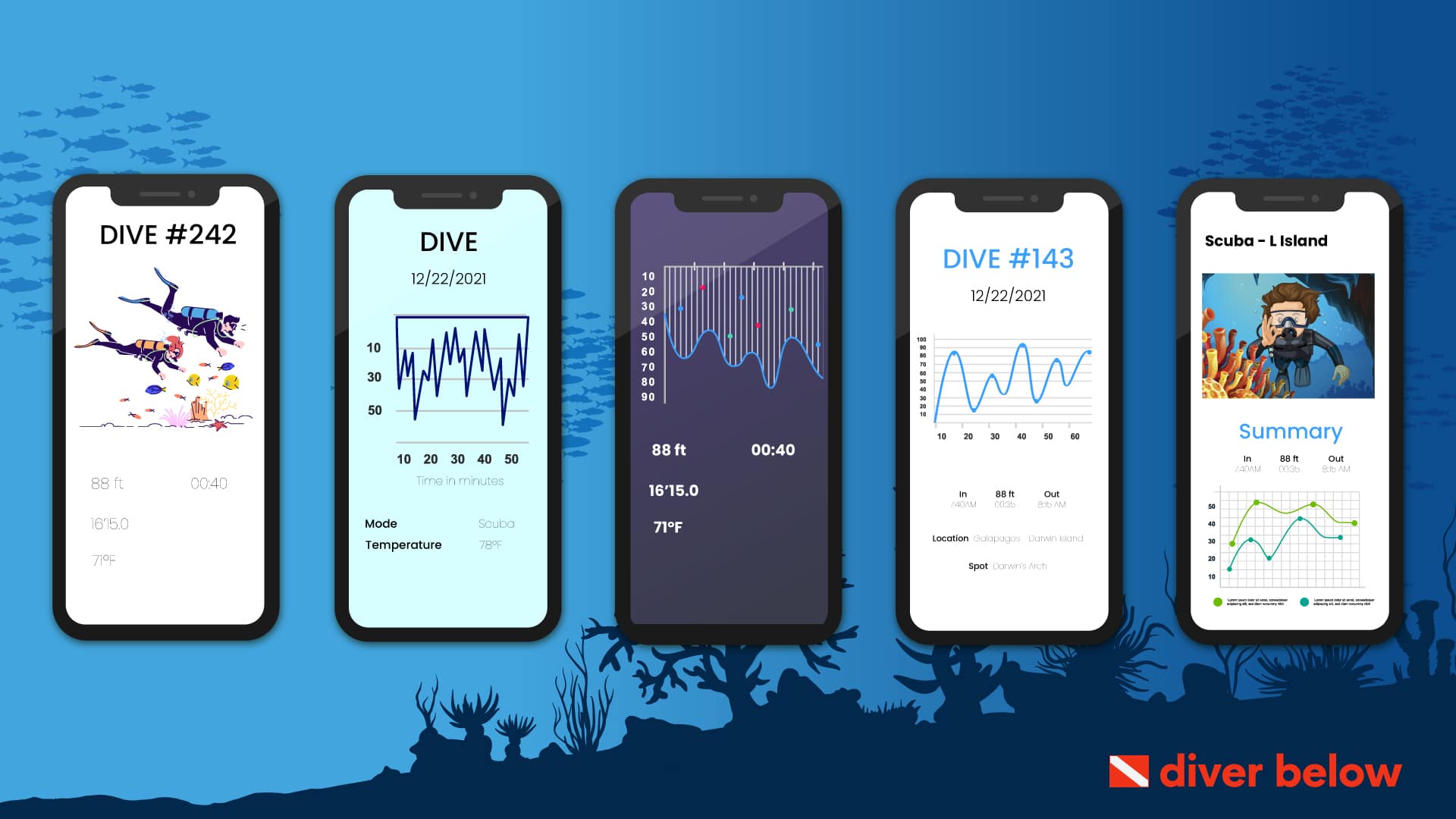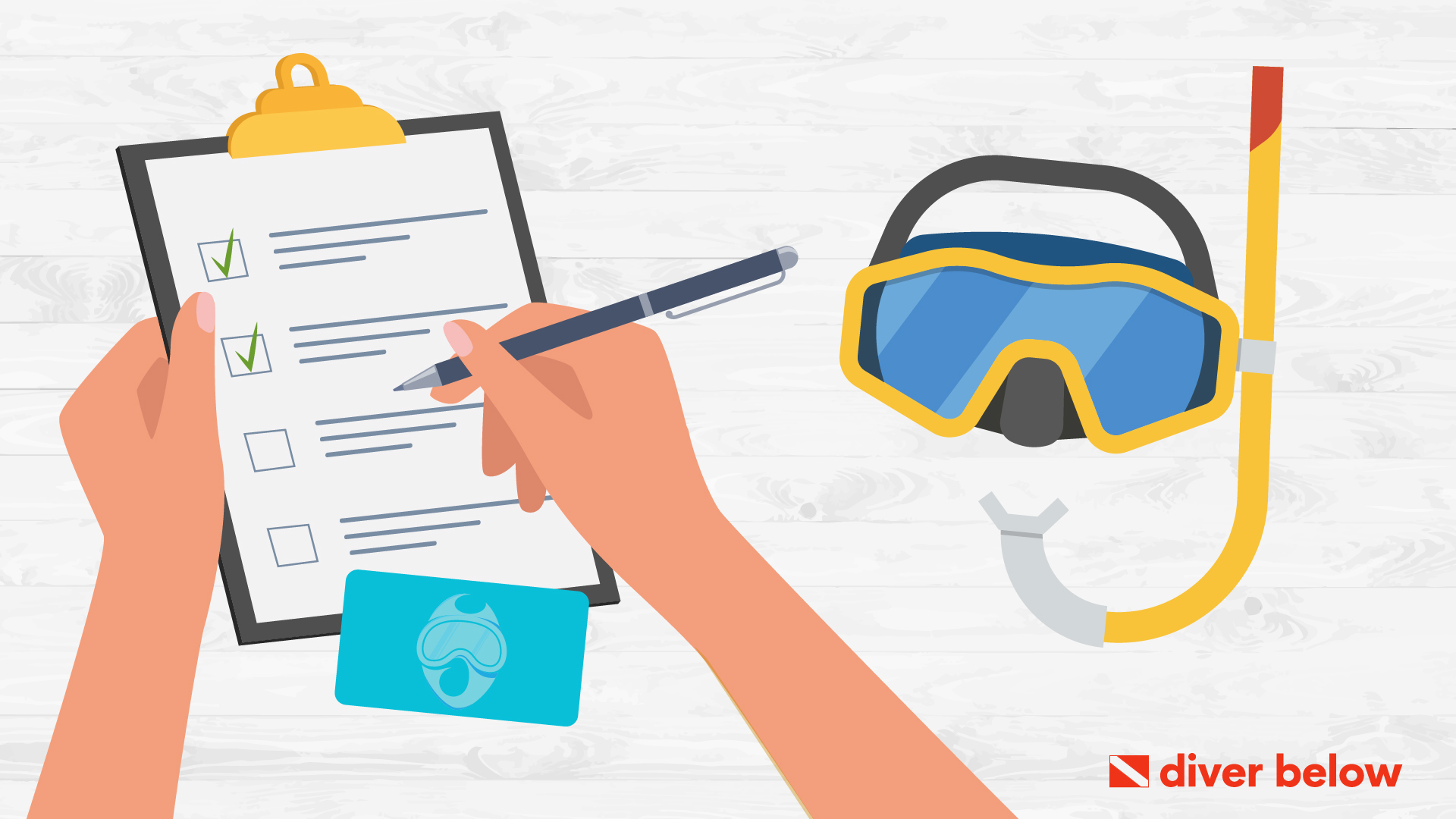It seems as if there’s no shortage of tools you must use when plunging into the ocean for a scuba expedition.
Between dive weights, cylinders, a wetsuit, and regulators, it can be easy to lose track of everything you need before a trip.
One of the more important aspects is your dive log.
But what exactly is a dive log? And how will it help you for your next dive?
Read on to find out.
Contents
What is Dive Logging?
Dive logging is the act of recording the different elements of your dive, like date, time, location, depth, profile.
This gives you a better sense of how you did, what you need to change for next time, and to share information with others.
Dive logging acts as sort of a dive guide for you and others embarking in similar waters.
Because diving requires a lot of fine-tuning and a lot of equipment, it can be challenging to remember what worked and what didn’t.
When you write your information down, it can better help you in your future expeditions.
Why Should I Log Dives?
There are countless reasons why you should log your dives.
Logging your dives is an integral part of the diving experience because it allows you to understand your equipment better.
It also allows you to understand what levels of weight you need for what waters.
It also helps keep track of the fun times from all your scuba trips.
1. Proves Experience
Dive logging is an excellent way for you to track your progress and personal growth as a diver.
It allows you to keep track of your air consumption, how much weight you’re using, your average depth, duration, as well as other statistics.
Even more experienced divers should continue to log their dives.
This is because you may want to re-visit the same site years later.
As such, it can be challenging to remember what worked; diving logs all you to pick right up where you left off;
2. Planning for Future Dives
Understanding how you performed in your last dive will help you prepare for your next dive.
Logging your dives can also help you remember diving at the same sites.
It may have been a while since you last dived in one of your sites – weeks, months, or even years.
Keeping track of your equipment and the results can help you better prepare for the same dives.
3. Don’t Forget Memories
Equally important, logging your dives allows you not to forget your memories of each specific trip.
Many divers use their log book as a marine diary.
They recount what sights they saw, where they were, and other memories.
Even if you dive with a dive buddy or divemate, you still want to record your memories on your own to have for keepsakes.
Is Dive Logging Required?

When you start out, your instructor will require you to log your dives.
This is because at the end of the course, your instructor must sign your log.
As you become a more advanced diver, dive logging is no longer required.
Still, it’s a good habit to keep up.
Keeping a log book will improve your experience, and plan for future dives.
Additionally, keeping a log is an excellent way to pass the torch to beginner divers.
Recording your dive trips is also a great way to make friends in the diving connection.
By swapping logs, you can chat with fellow divers about what worked and what didn’t.
Information to Include in Dive Logging
When you include information in your dive log, you must include the basics.
Make sure to include the date of your dive, the location, the maximum depth of your descent, the average depth, the in and out times, the start and end tank pressures, and the temperature of the water.
However, that’s just the basics.
The more detailed you write your log, the more helpful it will be for future use.
You may want to include the type and thickness of your exposure suit, cylinder material, cylinder size, and the duration of your dive.
Some divers also include how much weight they used to achieve optimal buoyancy.
Ways to Log Dives
There are two main ways to log your dives.
The first is the traditional way, which is dive logging with a paper logbook manually.
The second is to use an electric dive log and app on a phone, pc, or tablet.
Both have benefits and drawbacks, so deciding which one you’d like to use is a personal preference.

Dive Log Book (Manually)
Nothing beats a good old-fashioned pen and paper when jotting down your dives.
Before technology, divers would manually write down their dive statistics.
Divers never had to worry about losing their log about water interacting with a paper journal.
However, you’ll have to buy more paper books continually, and you’ll have to figure out where to store them (and access them the next time you go diving).
It can often be tedious to write down the information yourself, and you open yourself up to making errors as you can’t be as accurate as technology can.
Dive Logging App (Our Suggestion)
Using a dive logging app is the way of the future.
There are many apps out there, so you can find one if you have an Android or an iPhone.
There are some apps that even automatically download your data as you dive via a Bluetooth connection.
This allows you to see all of the data without writing anything down and better enables users to understand how their dive went.
Overview of using an app to log dives
Every app is different, and so you must choose an app that works for you.
For example, some apps have more safety features, whereas others focus more on tides and diving conditions.
Either way, you’ll want to focus on an app that allows you to log important aspects.
Popular Dive Logging Apps
As technology becomes more advanced, there are more and more apps to choose from when it comes to logging your dives.
So, what one should you use?
The two most popular dive logging apps are DiveMate and Dive Log.
DiveMate is a great tool as it allows you to document your trip through pictures, videos, and notes.
You can also connect your computer and download your dive data from your smartphone and tablet.
With DiveMate, you can note your basic information to reference later.
The app also displays depth, pressure, and temperature profile, RMV/SAC, weight, bottle, and gas parameters during your dive for easy access.
Another great feature?
DiveMate can function even without internet connection, allowing divers to save and use maps even when you are offline.
Another popular app is Dive Log.
In addition to allowing you to keep track of all your dive information, when used with a desktop logbook app, you can use the app at the site or on the boat to learn more information about the site itself.
Dive Log is an excellent tool because it allows you to connect to other users and add “dive buddies” to your app
Wrapping Up
Dive logs are one of the most important tools divers have to ensure their trips keep getting better and better.
In addition to being able to track your process, dive logs help other divers swap information so that your diving social circle always has the best information to have the best dives.
Break out that pen and paper or purchase a dive log app today.





